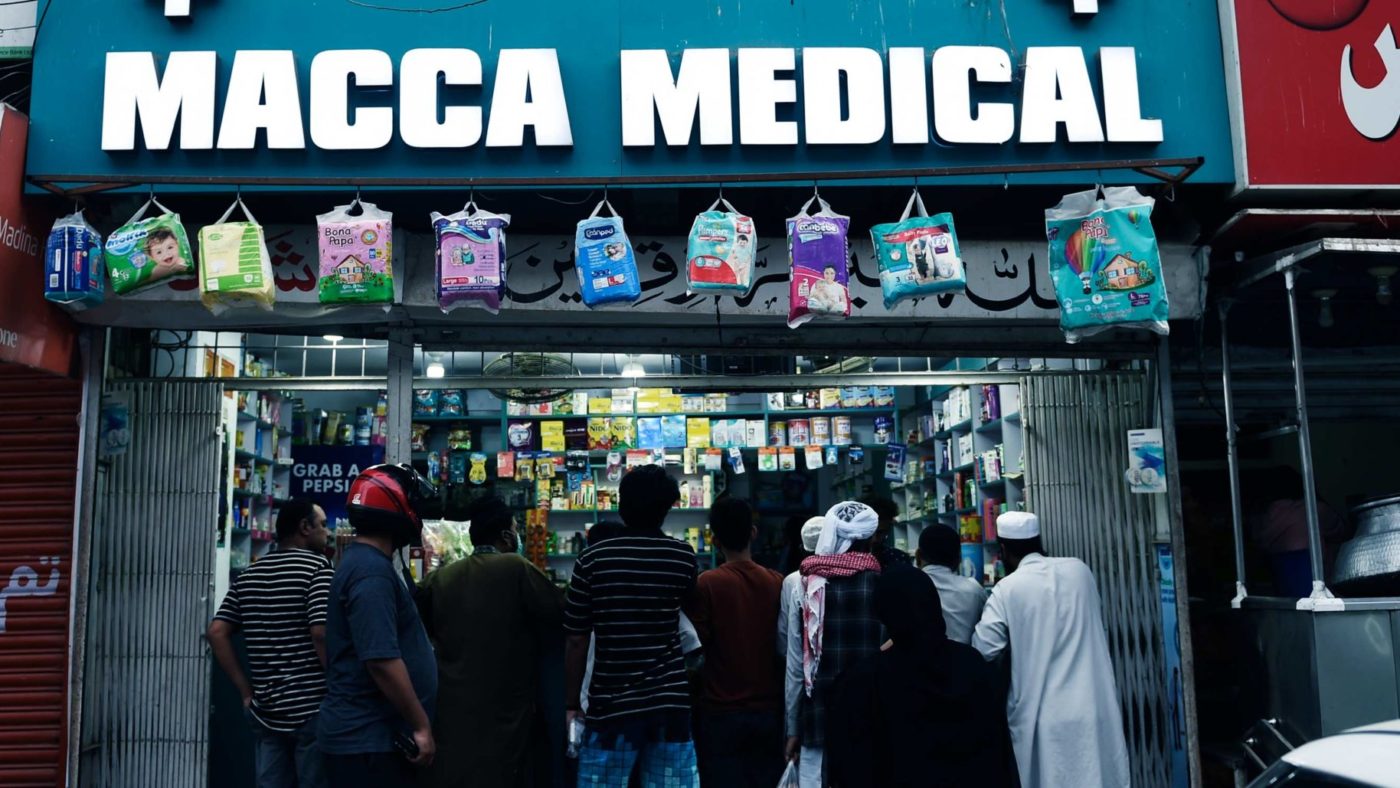While researchers in universities and private-sector laboratories work round-the-clock for new treatments and vaccines for Covid-19, physicians rely on a broad cabinet of older medicines to help patients through their darkest hour.
Unprecedented demand caused by hospitals stockpiling basic medicines such as antibiotics, painkillers, sedatives, and corticosteroids has caused global shortages and surging prices.
India’s drug regulator’s temporary green light for a 50% increase in price of the blood thinner heparin is one example. Indonesia’s Pharmaceutical Association has warned of price rises of 60% for some Covid essential medicines, while in the UK the price of basic painkillers has leapt 30% since the start of the pandemic.
These are unusual times when manufacturers are struggling to meet demand. But some governments are adding to the problem by levying needless import tariffs on medicines.
At 20%, Pakistan has the dubious honour of the highest global tariff rate, according to a report published this week by Geneva Network. The South Asian trio of Nepal, Pakistan and India (at 10%) have the top three tariff rates. Latin America is another medicines tariff hotspot, with Argentina and Brazil levying average tariffs of close to 10%.
Pharmaceutical manufacturing value chains are increasingly globalised; even low tariffs have a cumulative impact on a product’s end price, which is ultimately paid by patients. A 2017 study by the European Centre for International Political Economy found that medicine tariffs add a cumulative burden of up to $6.2 billion per year in China, $2.8bn in Russia, $2.6bn in Brazil and $737m in India.
Existing medicines are one issue, but Covid-19 is a newly identified disease; a new vaccine is the only long-term solution and its development, mass manufacture and rapid distribution globally are all critical.
Tariffs will hinder the rapid dissemination and uptake of the vaccine, resulting in needless suffering and death and economic hardship. While most countries enjoy tariff-free regimes for vaccines, certain others needlessly inflate their price through import tariffs. India again tops the table globally, with vaccine tariffs at 10%. Pakistan and Bolivia are among a clutch of countries that impose vaccine tariffs of 5%.
Beyond medicines, Covid essentials from hand soap to ventilators are more expensive thanks to tariffs. According to the World Trade Organization (WTO), the average applied tariff for hand soap is 17% and some countries apply tariffs as high as 65%. Five Latin American countries (Ecuador, Bolivia, Venezuela, Brazil, and Argentina) have the highest tariffs on facemasks, from 17% to 55%. Brazil, Argentina, and Venezuela levy a 14% import tariff on ventilators; in India it’s 10%.
Some governments – Pakistan, Brazil, Columbia and Norway among them – have shown leadership by temporarily exempting Covid-19 related medicines, vaccines and medical supplies from import duties and taxes. Meanwhile, APEC governments are discussing proposals to suspend taxes and tariffs on Covid-19 medical products for at least a year.
While positive, such reforms are only temporary. They create uncertainty for exporters over the long-term direction of individual markets. They undermine preparation for future pandemics by medicine manufacturers.
Governments should go further and commit to permanent tariff reductions on medicines, vaccines, and medical supplies through legally binding WTO commitments.
Most obviously, more WTO members should back the organisation’s Pharmaceutical Agreement (also known as “Zero for Zero”) as swiftly as possible, bolstering the group of 34 countries who have already agreed to abolish tariffs on medicines for all WTO members. The UK should encourage more countries to join the deal, and push for its expansion to include all medical goods.
Notably absent from the agreement are the BRIC countries – Brazil, Russia, India, China and South Africa. Their support would mean permanent duty-free medicines for most of the world’s population. That would not only be a vital boost in the fight against Covid-19, but also a positive legacy for the future.
Click here to subscribe to our daily briefing – the best pieces from CapX and across the web.
CapX depends on the generosity of its readers. If you value what we do, please consider making a donation.


